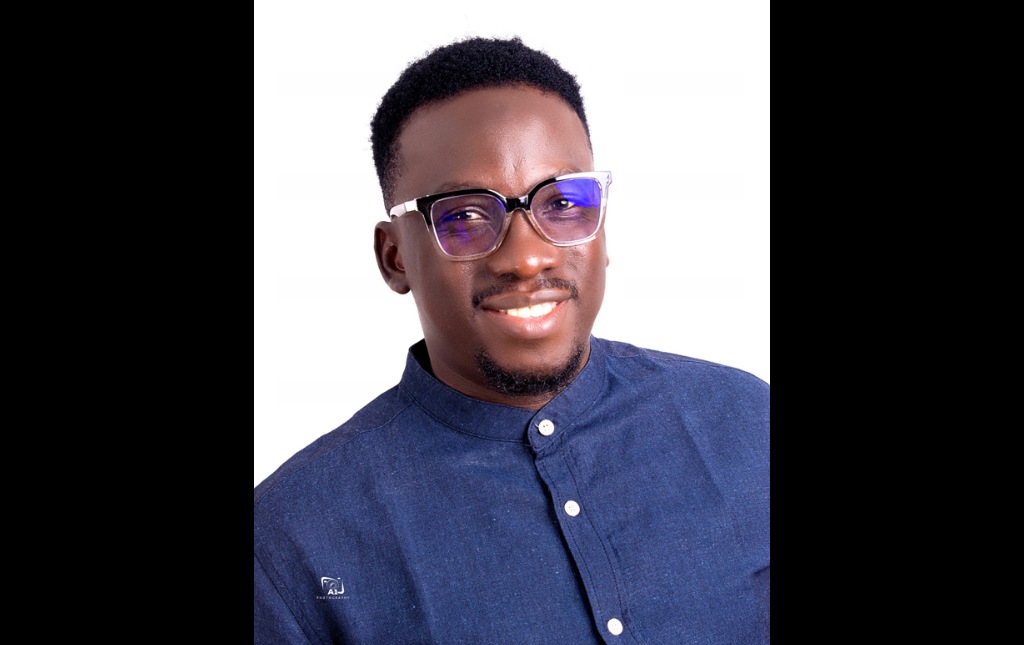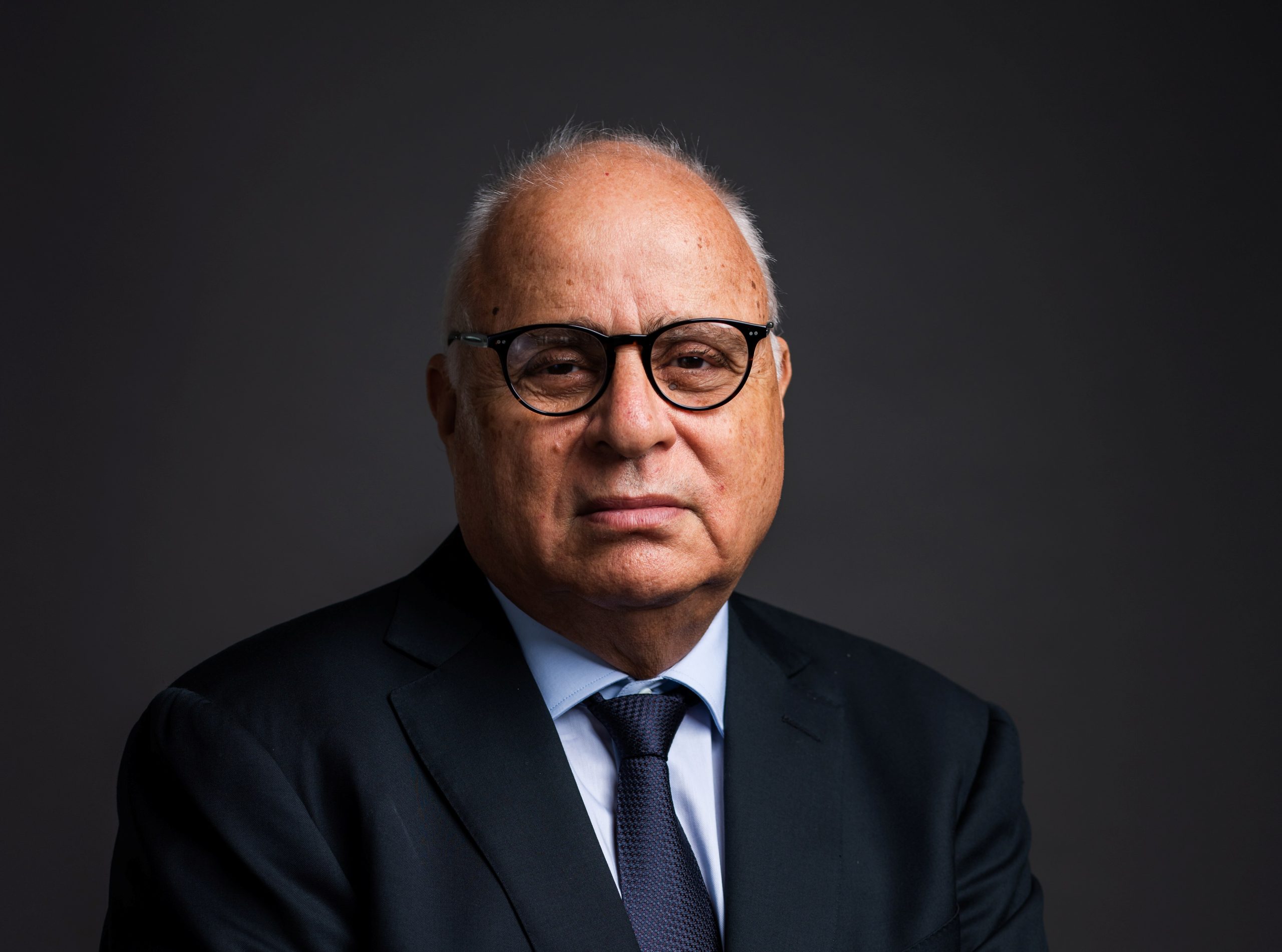
Advancing Fertility Care in Nigeria: Insights from The Bridge Clinic
The Bridge Clinic is a prominent fertility center in Nigeria, providing a range of advanced reproductive health services, including IVF and IUI, with a strong emphasis on patient care and success rates. Established in 1996, the clinic has built a reputation for its comprehensive fertility treatment services, utilizing state-of-the-art facilities and adhering to international healthcare standards.
As a result, the clinic has become a trusted choice for individuals and couples seeking fertility solutions both in Nigeria and internationally. In a special report, Dr. Richardson Ajayi, the Medical Director of TheBridge Clinic, shares insights into the clinic’s successes, challenges, and future prospects.
How would you describe the state of fertility care in Nigeria today, and what progress have you seen in the last few years?
By next year, we will have been running for 30 years. When we started operations in 1996, some organisations claimed to offer IVF services, but there was really no focused IVF clinic. We became the first focused IVF clinic in Nigeria.
IVF requires the skillsets of highly technical professionals, including andrologists, fertility nurses, reproductive endocrinologists, embryologists, as well as counsellors and other mental health professionals. So, we had to build everything from scratch. We began with consultants from King’s College, London, who came to support us, and simultaneously, we started training our staff.
Mr. Nwora Melie was sent to King’s to be trained and returned as our first (and I believe Nigeria’s first) embryologist. Since then, we have trained several embryologists and doctors. Many of them have gone on to establish their own IVF clinics. Today, many IVF clinics are in operation. Technology has made it much easier to offer IVF services.
And, because it’s easy to do IVF, there are a lot of people doing IVF. That’s the good side. The dark side of it is that with IVF, we’re dealing with something sacrosanct: human life. This is not something that anyone should be allowed to dabble in. There needs to be strict regulations. We’re very utilitarian in our culture.
Our society highly values virility and fecundity. Baby factories exist because people will do anything to have a baby. Lola Shoneyin’s novel The Secret Life of Baba Segi’s Wives explores this theme, revealing the interplay between polygamy, infidelity and infertility in a patriarchal society.
So, within our cultural milieu, how do you regulate the practice of IVF? Assisted Reproductive Technology requires strict ethical and moral considerations, which are currently lacking in Nigeria. Technology is available, but it needs to be strictly regulated and monitored.
What innovations or technologies has Bridge Clinic adopted in 2025 that are transforming success rates for patients?
The only thing that has transformed IVF over the last 20-odd years is ICSI, Intra-Cytoplasmic Sperm Injection, a procedure that helps men with certain fertility issues father children. Bridge Clinic introduced it to Nigeria in 2000. Today, pregnancy rates are better than they used to be, mainly because of refinements in the processes of IVF.
There has been considerable discussion about AI and improvements in embryo selection to enhance pregnancy rates, but the data in many instances is inconclusive. At Bridge Clinic, we employ
Whatever refinements can improve IVF outcomes, including Magnetic Activated Cell Sorting (MACS) and Pre-Implantation Genetic Testing. Pregnancy is not a 50-50 chance. It is a 1 in 4 chance. A young couple who are just starting to try and achieve a pregnancy have a 25% chance of conception every month if their timing is right. We did a bit better in IVF.
If you do IVF in rats and rabbits, you get almost 100% pregnancy rates. However, this is not related to IVF; rather, it is a result of the complexity of human reproduction. But IVF solves a specific problem, and that’s a problem with a man and a woman who cannot generate their embryos by themselves. God has given us the gift to be able to do that.
Fertility treatments can be expensive. How are you working to make them more accessible and affordable for everyday Nigerians?
Today, we import virtually everything we need to function. The cost of supporting infrastructure, particularly the cost of power, has more than quadrupled over a short period. We want to treat everybody, but we can’t. We need constant, affordable power supply. Our incubators have not dropped power in almost 30 years at huge cost.
We granted subsidized IVF at Lagos State University Teaching Hospital for 10 years at their Institute of Fertility Medicine, allowing patients at the institute to pay half of the cost of IVF treatment for a decade. Bridge Clinic absorbed the other half. Over that period, hundreds of babies were born.
How do you navigate sensitive issues such as surrogacy, egg/sperm donation, and embryo freezing within Nigeria’s cultural and legal frameworks?
As a doctor, I cannot treat you with donor sperm without your wife’s permission. However, some men come in wanting to maintain the appearance of virility. They know they have a sperm problem, so they come to us and say, “Can you treat my wife with donor sperm and not tell her?” We will not do that, because that is an assault on the wife. On the other hand, some women who have reduced ovarian reserves ask us to treat them with donor eggs and not tell their husbands.
If she’s not married, it’s her decision. But if she has a husband, she’s legally bound to her husband, and both have rights that cannot be infringed upon. If we as a clinic treat her with donor eggs and then use her husband’s sperm to fertilize the donor eggs without his permission, that is an assault on his person. If a clinic is clear about what constitutes informed consent, assault and justice, then cultural issues are straightforward.
At Bridge Clinic, we don’t do things that are either illegal or unethical. So, if people make those sorts of requests, the answer is no. It is not difficult to make the right decision.
Surrogacy, for example, is an interesting issue, because it is very difficult to enforce surrogacy as you see in the law of contracts. You can enforce it in the law, but there are moral and ethical questions to answer.
At the Bridge Clinic, we don’t get involved in surrogacy procurement. However, we treat surrogates. In fact, Bridge Clinic had the first surrogate birth in Nigeria which was captured in an editorial in the Guardian about 22 years ago in 2003 This was purely altruistic: the sister of the woman involved offered to become a surrogate.
Beyond medical treatment, what kind of emotional and psychological support do you provide for patients and couples?
We have two permanent counsellors on our staff, and they work tirelessly providing support to all our patients. We also have a clinic in London, Bridge Clinic London, and the reason we’re there is that we are trying to make sure we work according to international standards. Part of the international standard is the essential requirement for patients to have a counsellor. That is part of what we do.
What role do you see Nigerian fertility clinics playing in shaping the global future of reproductive health?
We have a large population and the demand for fertility treatment is very high. But we must do things from a moral and ethical point of view for us to be recognized. We don’t want to give the impression that we run baby factories and carry out unethical practices.
If you could change one thing in Nigeria’s fertility ecosystem right now, what would it be and why?
Regulations! We must increase the barriers to entry. It’s not an all-comers market. It’s like banking. When I was young, we had a lot of banks: there were banks everywhere. Half of them would fail and you’d lose all your money, until they increased the barriers to entry and we now have proper banking.
The same principle applies to healthcare. In Nigeria, we make healthcare about the doctors. Any doctor can run a small space and call it a hospital, even when it is not properly equipped. This is because we’ve not defined the regulatory framework to operate a hospital.
Ideally, if you want to do IVF, enforceable regulations will stipulate the kinds of rooms and equipment you must have, your power supply, the number of trained staff and so on.
Several challenges, however, face the regulatory framework about healthcare in Nigeria. Virtually all healthcare regulatory agencies have been set up to react to issues rather than proactively ensure the establishment and maintenance of healthcare facilities to laid down standards.
The existing framework is highly fragmented. This has led to lack of coordination and inconsistent standards between different regulatory authorities with no specific focus on overall output as it affects the patient. Although MCDN, for example, has a code on medical negligence and responds effectively when claims are made, the problem is that a claim must be made before the Council can respond. The damage has already been done, and this is not good enough when lives are at stake.
The Federal Government has inaugurated a committee, of which I have been given the privilege of chairing. We have been given the mandate to come up with a national framework for regulating all healthcare facilities, not just IVF clinics, in a new Nigerian Health Facility Regulation Agency, NPHRA.
Nigerian fertility clinics poised to become critical innovators shaping global future of reproductive health- Balm Ajec

Prof Owolabi Alexander Tuesday is a Consultant Obstetrician and Gynaecologist and Fertility Specialist at Balm Ajec Fertility Hospital (Formally Balm of Gilead Specialist Hospital), Oke Opo GRA, Opposite Eunice Petrol Station, off Ayeso Street, Ilesa Osun State.
He is also the current Head, Department of Obstetrics, Gynaecology and Perinatology, College of Health Sciences, Obafemi Awolowo University and Honorary Consultant Obstetrician and Gynaecologist and Fertility Specialist at Obafemi Awolowo University Teaching Hospital Complex, Ile-Ife. In this interview, he spoke about fertility in Nigeria, surrogacy and others.
Balm Ajec Fertility Hospital is among the foremost clinics in nigeria’s leading clinics shaping the future of parenthood. Its dedicated team is devoted to delivering tailored care and a variety of cutting-edge fertility treatments to help families realize their dream of starting a family.
Since inception in 2011 in Ilesa, Osun State, it has been offering full range of Advanced Services of Assisted Reproductive Technologies (ART), including In Vitro Fertilization (IVF), Intracytoplasmic Sperm Injection (ICSI), Frozen Embryo Transfer (FET) Sperm and Egg Donation and robust, reliable and effective surrogacy programme. Excerpts:
How would you describe the state of fertility care in Nigeria today, and what progress have you seen in the last few years?
The state of fertility care in Nigeria today shows growing awareness and decreasing stigma. There is a much higher awareness of infertility as a medical condition rather than a spiritual curse or a woman’s fate.
Public figures and celebrities are speaking openly about their IVF journeys, helping to normalise the conversation. In terms of stigma, however, the social and cultural pressure, particularly on women, remains intense. Infertility is still causing marital discord and discrimination in many communities.
Another major factor in Nigeria is the concentration of advanced services in urban centresprimarily located in major cities such as Lagos, Abuja, Port Harcourt, and Ibadan. However, the Balm of Gilead Fertility Centre of the Balm Ajec Fertility Hospital Limited located in Ilesa, Osun State is breaking the narrative.
What innovations or technologies is Balm of Gilead Hospital adopting in 2025 that are transforming success rates?
Our focus has been to advance our practice and improve the success rate by leveraging on Technological and medical advancements like Time-Lapse Imaging (TLI) (EmbryoScope+/Eeva™️), which allows embryologists to select the healthiest embryos for transfer without disturbing them, leading to higher pregnancy rates. Preimplantation Genetic Testing (PGT) help to screen embryos for chromosomal abnormalities allowing selection of healthier embryos for transfer and for family balancing in terms of sex selection.
Introduction of Artificial Intelligence (AI) and Machine Learning for Embryo Selection. Advanced software (like Ivy™️, LifeWhisperer™️) that uses deep learning to analyse embryo images (from time-lapse or static) with far greater accuracy and consistency than the human eye.
Advancement in leadership and research positioning (Exploring in 2025) is to participate in niPGT clinical trials offering IMSI as a specialized service for severe male factor cases and investigating the role of PRP and other immunotherapies in a controlled, research-based manner and preparing a perfectly receptive uterus with ERA. This will help us to position ourselves and allow us to offer the highest standard of evidence-based, personalized care, fundamentally transforming success rates and patient outcome.
How are you working to make your services more accessible and affordable to Nigerians?
The high cost of fertility care is a significant barrier for many couples in Nigeria. First solution we adopted is financial strategies and payment solutions. These include structured payment plans. Instead of paying the entire sum upfront, we offer instalment plans. This allows couples to spread the cost over several months or even years, making it easier to budget for.
Treatment bundling and fixed pricing. Offering package deals for common procedures like IVF. A single, transparent price for the cycle including medications, monitoring, and the procedure itself helps families avoid unexpected costs and plan better. This contrasts with itemised billing where costs can creep up.
Multi-Cycle Packages: offering discounted rates for purchasing two or three IVF cycles in advance. This can be more cost-effective in the long run for patients who might need more than one attempt, and it provides psychological comfort.
Another strategy we adopted is to reduce internal costs which allows the hospital to charge patients less without compromising quality.
How do you navigate sensitive issues such as surrogacy, egg/sperm donation, and embryo freezing within Nigeria’s cultural and legal frameworks?
This requires a delicate balance of medical ethics, deep cultural sensitivity, and caution within a currently evolving legal landscape especially in a culturally rich and complex society like Nigeria.
Cultural Navigation in surrogacy cases emphasis on Genetic Link: Our hospital prioritizes Gestational Surrogacy, where the surrogate carries an embryo created from the intended parents’ or donors’ gametes over traditional surrogacy, where the surrogate uses her own egg. This maintains a clear genetic link for the intended parents, which is highly valued and avoids complex issues of maternal identity.
In term of family and community involvement, there is a need for counsellors to work with the intended parents to plan how to discuss the arrangement with immediate family, as keeping it, a complete secret is often difficult. The focus is on surrogacy as a gift and a blessing.
There is a need for careful surrogate screening. The surrogate must undergo rigorous medical, psychological, and social screening. It’s crucial to ensure she is emotionally stable, has a strong support system, and fully understands the commitment.
Navigating the legal aspect is a critical step, that is, the legal contracts. I strongly advised legal agreement before any treatment begins, the hospital must insist that both parties have independent legal advice and sign a comprehensive surrogacy agreement. The hospital act as intermediary between the two parties and is best to maintain anonymity.
This contract outlines financial arrangements, that’s, compensation for expenses, not payment for the baby, expectations during pregnancy, rights and responsibilities, and most importantly, the agreement that the intended parents will be the legal parents upon birth.
Beyond medical treatment, what kind of emotional and psychological support do you provide for patients and couples?
This is a vital aspect of comprehensive fertility care. The emotional and psychological journey through infertility is often described as a rollercoaster of hope, grief, stress, and isolation. At the Balm Ajec Fertility Hospital Limited we provide Integrated Psychological Counselling and Therapy, robust, empathic support that goes far beyond the clinical procedures, because we are truly committed to patient well-being.
Faith-Based Integration: Recognising the central role of faith for many Nigerians, support may include collaboration with sensitive faith leaders or providing resources that help patients reconcile their spiritual beliefs with their medical journey. As faith-based hospital, we believe the support offered in the word of God as documented in the Bible. The word of God offers support and hope for those who believe in it. However, we also allow others to navigate what ever they believe in and not impose our belief on others.
Can you share a success story that reflects the human impact of your work?
The relationship between Abigael and Johnson (not real names) was then 25 years with inability to produce a child. They have had series of treatment in various clinics, before presenting to us, including two fibroid operations without any success. When they presented to us their marriage was at the verge of total breakdown, but the woman was very prayerful and agreed with our counselling and support team who encourage the couple to trust God for the success.
The support team also offer prayers and some Bible verses to encourage their faith to hope for Gods define intervention According to her, she was at her withs end and seeing this treatment as her last chance to keep her marriage intact, failure will mean the end of the road as far as her in laws had threatened. She was assessed and preliminary treatment was offered for three months. The husband was discovered to have severe oligospermia, so ICSI was recommended for the husband while the wife is to make use of donor eggs by an anonymous donor because of menopause.
Their cycle came and gone egg was retrieved from the allotted screened egg donor, and the husband successfully produced his semen. On day of the embryo transferred two blastocysts were transferred. The two-week wait after the embryo transfer is often the most agonizing period. Abigeal and Johnson continue to pray and belief god for a miracle. The news of a positive pregnancy test and subsequent management of the case and the delivery of their baby boy have brought lasting peace and relief to the family.
What role do you see Nigerian fertility clinics playing in shaping the global future of reproductive health?
From 30 years of infertility management and some who had work as insider, I can boldly say that the Nigerian fertility clinics are not merely importers of technology; we are poised to become critical innovators and leaders shaping the global future of reproductive health.
Our unique position allows us to contribute in several pivotal ways this is seen over the past 15 years of the running of the Association for Fertility and Reproductive Health (AFRH) our main Support body in Nigeria.
We are pioneering Cost-Effective and Scalable Models. The most immediate and impactful contribution is in demonstrating how to deliver high-quality, advanced reproductive care at a fraction of the cost common in Western countries.
From my personal experience in running the Balm Ajec Fertility Hospital Limited (Balm of Gilead Fertility Centre), Ilesa there is what we can call “Frugal Innovation” where Nigerian clinics have become masters of achieving excellent success rates without the immense overhead. This involves optimizing drug protocols, maximizing the efficiency of laboratory workflows, and maintaining state-of-the-art but carefully selected equipment. The world, especially in resource-limited settings, is hungry for these models
If you could change one thing in Nigeria’s fertility ecosystem right now, what would it be and why?
If I could change one thing, it wouldn’t be a technological breakthrough or a new piece of lab equipment. It would be something more fundamental. I would create a national framework for affordable financing and insurance coverage for fertility treatments.
Spending money out of pocket mostly burrowed create a lot of uncertainty and fear about ‘what if the process does not work?’. Affordable financing or insurance would change the question from “Can we afford this?” to “What is the best medical path for us?” It restores agency and dignity.






